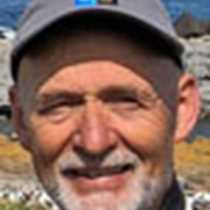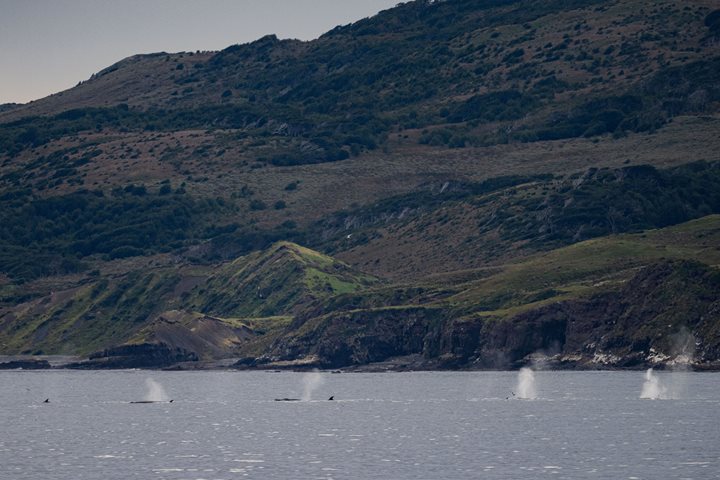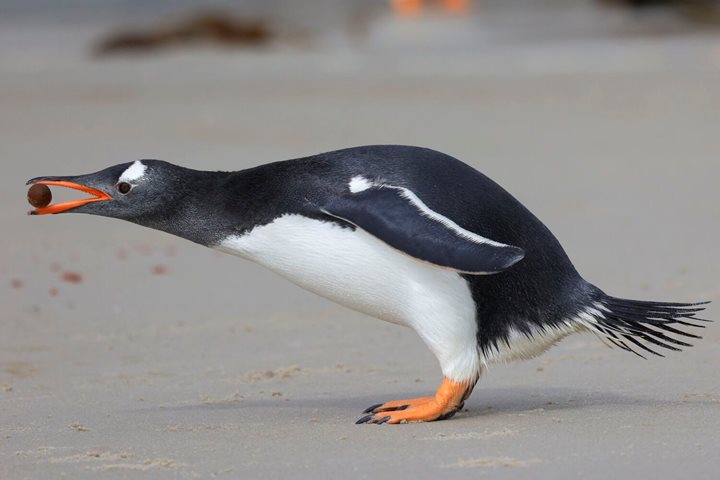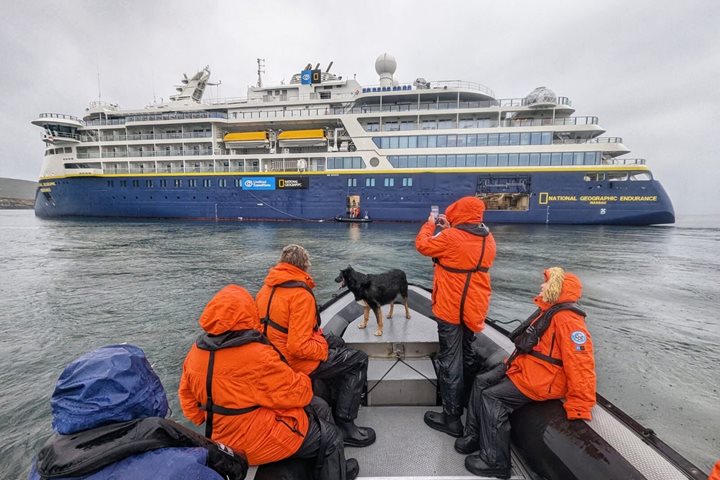This morning, we woke up to calm seas after a pleasant sailing across the southern part of the Scotia Sea. This body of water forms the northern boundary of the Southern Ocean, bordering the South Atlantic Ocean to the north.
After breakfast, undersea specialist Rachel Martin gave an engaging presentation on “The Love of Krill.” Krill is a keystone in the entire ecosystem of the Southern Ocean. It is the main food source for a number of penguins, seals, and whales. Rachel’s presentation was interrupted by a message from expedition leader Sheri, “Southern right whales have been spotted ahead of the ship. We don’t want you to miss this rare encounter, so please bundle up and come out on deck!” The encounter turned out to be three southern right whales, seemingly two adults and most likely a calf. The species got its name from the fact that this whale was “the right whale to catch.” As slow swimmers that stay afloat after being killed, these whales were hunted close to extinction. They are now slowly recovering. The Southern Ocean is estimated to hold about 11,000 southern right whales, probably less than 10 percent of the pre-whaling population. The three animals we saw today were quite playful and seemed totally unbothered by the presence of our ship. Guests were in total awe during the incredible show that lasted over a half hour. Rachel then resumed her talk on krill. Afterwards, naturalist Carl Erik Kilander invited us to a second lecture, “The Greatest Polar Explorer of All Time,” in which he shared the impressive history of Norwegian explorer Roald Amundsen.
After lunch, naturalist Karen Velas taught us about the relatively rich birdlife on South Georgia. An impressive 87 bird species have been observed on this sub-Antarctic island, with 30 species of regular breeders. Special attention was given to the most iconic birds of the island, the king penguins and the various albatrosses that nest on South Georgia. Later in the afternoon, Captain Martin Graser gave a very enthusiastic talk about our ship, National Geographic Resolution. Captain Graser spent much of the vessel’s building period at the shipyard in Ulsteinvik, Norway. He masterminded some of the changes that proved necessary to make the ship function optimally, including a total redesign of the bridge.
In the evening, we viewed the second part of the documentary Britain’s Whale Hunters: The Untold Story in the Ice Lounge.
Tomorrow will be our first landing on South Georgia, also known as the “Serengeti” of the Southern Ocean. Do we even need to say that our expectations are high?







